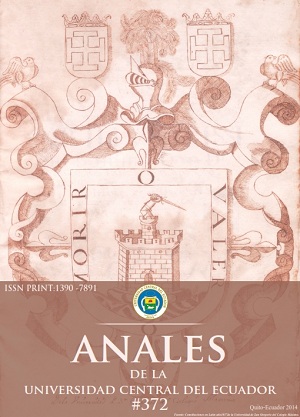Una visión científica al sistema filosófico De Friedrich Nietzsche
DOI:
https://doi.org/10.29166/anales.v1i372.1293Keywords:
Individualism, Nihilism, Planck’s constant, Background action fieldAbstract
Nietzsche is considered one of the most influential thinkers of western philosophy from the end of the 19th century to the present day. His proposals have criticized the ethical, aesthetic and scientific values of the Judeo-Christian thoughts in the West. This paper considers some of the scientific effects of his work taking into account his biography and his historical context. The main proposals of his philosophy are captured as: the death of God, the advent of the superman, the will of power and the eternal recurrence of the same. These proposals are analyzed and confronted with current scientific knowledge. This confrontation is considered in the light of some of its epistemological consequences: the negation of human rationality and the negation of the existence of natural laws. Thus, Nietzsche opens the Renaissance of magical thinking and the denial of science. The backbone of his philosophical proposals is individualism, thus the human existence in the context of the most absolute solitude would be possible. This last point is in contradiction with the results presented by the authors in [1], where the individual existence and characteristics are the result and the singular manifestation of the whole universe.
References
• W.P. Álvarez-Samaniego, B. Álvarez-Samaniego y D. Moya-Álvarez, Una interpretación física de la constante de Planck, Diciembre (2012). Preprint (texttt{http://arxiv.org/abs/1306.0894}).
• D. Moya-Álvarez, El campo de acción. Una nueva interpretación de la Mecánica Cuántica, editado por la Escuela Politécnica Nacional (1994), Quito, Ecuador.
• F. Nietzsche, Obras inmortales, Tomo 1, Edicomunicación S.A. (1985), Barcelona, España.
• F. Nietzsche, Obras inmortales, Tomo 3, Edicomunicación S.A. (1985), Barcelona, España.


